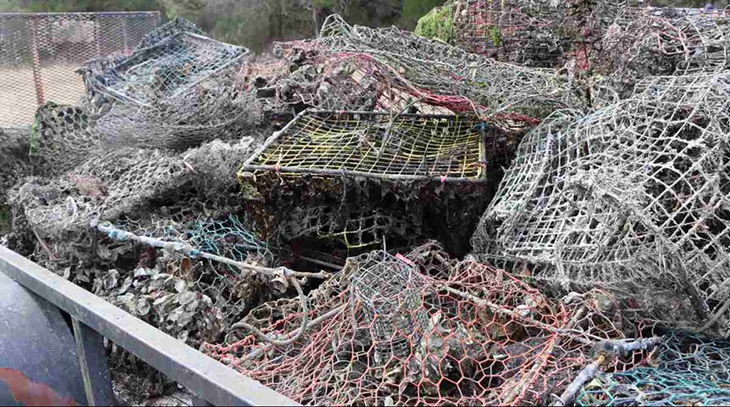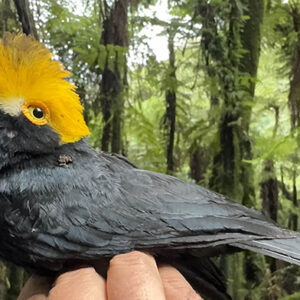
Fishermen in the state of Mississippi are now being incentivized to collect abandoned crab traps. The idea is to help safeguard wildlife from becoming ensnared in them.
The Mississippi Commercial Fisheries United, a nonprofit organization of fishermen, initiated a program that offers a bounty of $5 for each derelict trap collected. In just three years, the program has managed to retrieve over 3,000 traps. These crab traps work by allowing them to crawl in, but trapping them in such a way that they can’t crawl back out. So if the traps are abandoned, the crabs end up getting stuck inside and dying as a result.
While this is advantageous for fishermen seeking to provide the Gulf Coast with delectable seafood, these traps pose a threat when they are abandoned or misplaced. They continue to ensnare marine life indiscriminately, leading to a phenomenon called “ghost fishing.”
This so-called ghost fishing has prompted the establishment of this program, enabling participating shrimpers and crabbers to register and contribute to the cause. They meticulously catalogue and tag each trap they collect, progressing towards the final step of turning them in at a designated redemption site.
A graduate student at Mississippi State University, Alyssa Rodolfich, spoke with Hakai Magazine, telling them about how gratifying it was to see the number of derelict traps being submitted for redemption. Initially unaware of the magnitude of the problem, she stated, “I didn’t realize how big of a problem it was until I was on the cleaning-up end of it, after a few months of removing, like, 200 crab traps at a time,” she says. “It was heavy and gross, and the amount of by-catch in the traps was a lot.”
Rodolfich’s observations and experiences contributed to the project’s success, with Mississippi State University collaborating alongside the Mississippi Commercial Fisheries United, the Mississippi-Alabama Sea Grant Consortium, and the National Oceanic and Atmospheric Administration (NOAA).
Rodolfich even served as the lead author of the published paper, documenting the achievements of the groundbreaking program.
While the program’s annual cost has amounted to approximately $34,000, this investment pales in comparison to the estimated annual loss of revenue caused by ghost fishing, which stands at $15 million due to the abandonment of over 50,000 crab traps each year. With such compelling and tangible success, the program has recently secured a grant from NOAA to finance the collection of other forms of debris from the Gulf. As Hakkai Magazine reports, this expansion is already gaining momentum, as fishermen are now bringing in old tires, shopping carts, washing machines, and even toilets.
The initiative undertaken by Mississippi’s fishermen to collect abandoned crab traps has proven to be an effective and sustainable solution to the problem of ghost fishing. Through their dedicated efforts, not only have they managed to retrieve thousands of traps, but they have also raised awareness about the environmental consequences of neglecting these traps in the oceans. By extending their endeavors to collect additional debris, the fishermen are actively contributing to the preservation of marine life and the health of the Gulf ecosystem.
What are your thoughts? Please comment below and share this news!
True Activist / Report a typo


